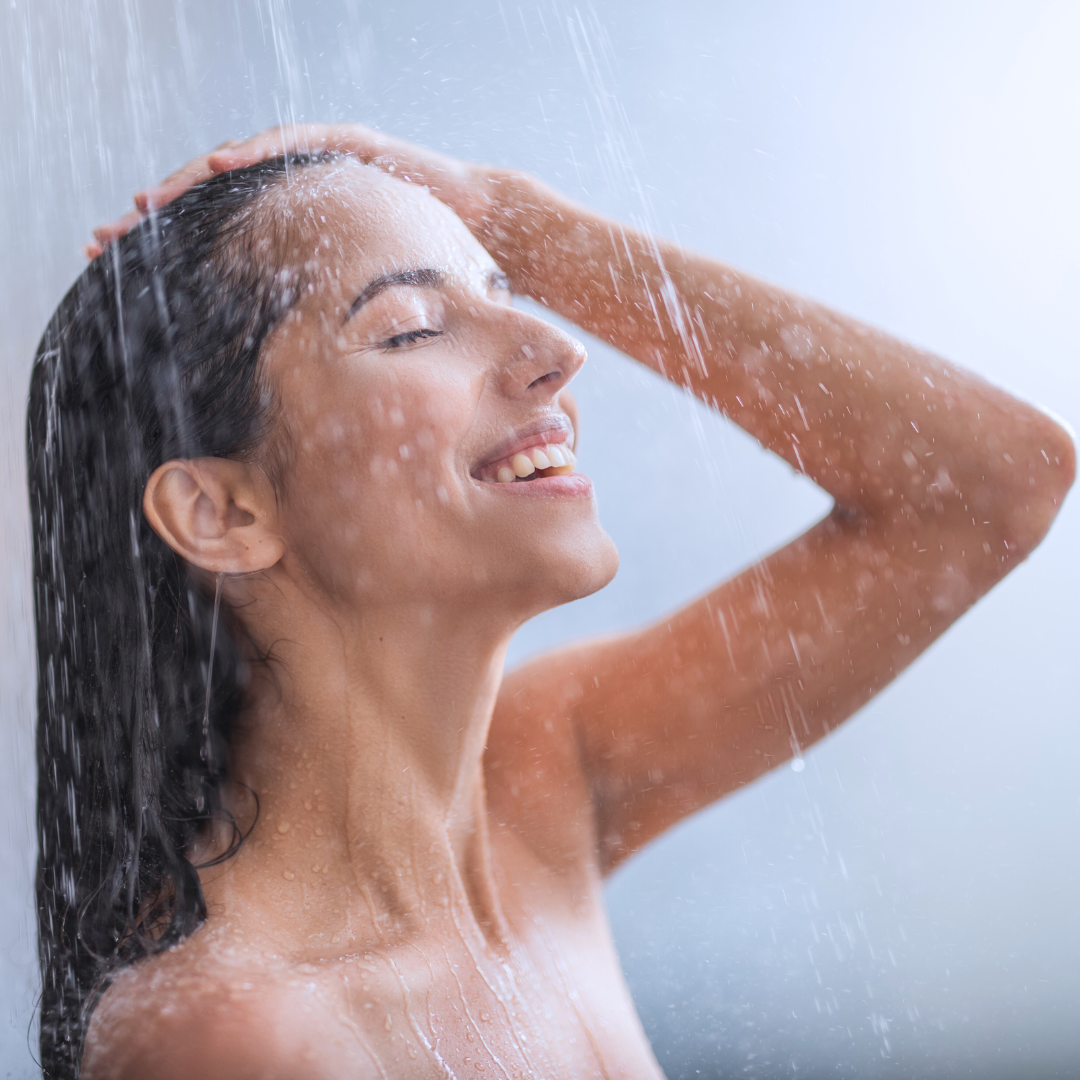Cold showers and cold baths have long been marginal practices, but their growing popularity is now part of a broader context of well-being. Beyond their traditional use, these thermotherapy experiences are attracting more and more attention because of their potential benefits on physical and mental health. In this article, we will explore the stories of individuals who have incorporated cold showers into their daily routine, while comparing these experiences with those of cold bath enthusiasts.
This dive into cold waters is accompanied by a reflection on the cultural and historical evolution of these practices. From ancient civilizations' fascination with ice baths to modern rituals , we will seek to understand how cold water became an element of choice for those seeking refreshing sensations and potential health benefits.
As we set out to explore personal accounts and scientific knowledge, it becomes clear that cold showers and baths are no longer simply sensory experiences, but practices integrated into wellness routines. Let's explore these cold waters and dive into the intersection between personal experience and scientific research to demystify the claimed benefits of these ancestral practices.
Scientific Basis of Cold Showers
The growing popularity of cold showers is supported by a series of scientific studies exploring the physiological impacts of this practice. This research offers valuable insights into the mechanisms underlying the benefits often reported by those who have adopted this refreshing habit.
Effects on Blood Circulation
A study conducted by Stanley et al. (2018) entitled “ Cold Water Immersion for Enhancing Recovery in Athletes ” demonstrates that cold showers promote vasoconstriction, thus contributing to better blood circulation. This vasoconstriction followed by vasodilation can potentially improve post-exercise muscle recovery.

Impact on Metabolism
Research has shown that exposure to cold stimulates the production of certain proteins, such as adiponectin, linked to the regulation of metabolism. These results are discussed in the study “ Acute cold exposure and brown adipose tissue activity in humans ” by van der Lans et al. (2014), suggesting a link between cold showers and metabolism.
Reduction of Inflammation
Cold showers have been linked to a reduction in inflammation. Research published in the journal "PLOS ONE" by Bleakley and Davison (2010) entitled "What is the Evidence for and Validity of Return-to-Sport Testing after Anterior Cruciate Ligament Reconstruction Surgery?" highlights the potential anti-inflammatory effect of cold baths, a conclusion that may also apply to cold showers.
These studies suggest that cold showers are not simply a sensory experience, but trigger significant physiological responses. These scientific bases add a factual dimension to personal testimonies, reinforcing the idea that this practice can have tangible impacts on health.
Scientific Basics of Cold Baths
Exploring the benefits of cold baths is based on in-depth scientific studies, shedding objective light on the physiological impacts of this particular form of thermotherapy.
Effects of cold water on the Nervous System
Studies, such as that conducted by Leeder et al. (2012) entitled " The Effects of Cold Water Immersion and Contrast Water Therapy for Recovery of Exercise-Induced Muscle Damage, " indicate that cold baths can positively influence the nervous system by reducing the perception of post-exercise pain, thereby promoting recovery.
Immune Response
Cold baths have also been linked to effects on the immune response. Research published in the "European Journal of Applied Physiology" by Pournot et al. (2011) entitled "Time-course of changes in inflammatory response after whole-body cryotherapy multi exposures following severe exercise" further suggests that cold baths can modulate inflammatory responses.
Comparison with Cold Showers
In comparison with cold showers, studies, such as that of Costello et al. (2012) titled “Whole-body cryotherapy (extreme cold air exposure) for preventing and treating muscle soreness after exercise in adults,” suggest that cold baths may offer specific benefits in terms of muscle recovery and reduced sensations of pain.
This scientific research illuminates the physiological mechanisms of cold bathing, showing how the practice can influence the nervous system, modulate the immune response, and provide distinct benefits over cold showers. This scientific basis complements subjective experiences, providing a more holistic perspective on the potential benefits of cold baths.
Medical Considerations and Precautions
As cold showers and cold baths gain popularity for their potential benefits, it is crucial to consider medical aspects and take precautions to ensure that these practices are suitable for everyone, avoiding any risk of complications.
Pre-Existing Medical Conditions
People with medical conditions such as hypertension, heart or circulatory disorders should consult their healthcare professional before adopting cold showers or baths. Studies, such as that conducted by Bleakley and Davison (2010), have highlighted that certain medical conditions can influence an individual's response to cold baths, and that it is necessary to consult a healthcare professional first.
Temperature Sensitivity
Individual sensitivity to temperature can vary considerably. Those with reduced cold tolerance should adopt these practices gradually, avoiding prolonged exposures that could lead to thermal shock. People with thermoregulation disorders should take special precautions.
Pregnancy
Pregnant women should be alert to temperature variations, as studies, such as that conducted by Costello et al. (2012), suggested that extreme cold exposures can influence the physiological response. Consultation with a health professional is strongly recommended to adapt these practices to pregnancy.
Individual Reactions
Individual responses to cold showers and baths may differ. Some may experience immediate benefits, while others may require longer adjustment time. Listening to your body and gradually adjusting the duration and intensity of exposure to cold is essential.
By integrating these medical considerations and precautions, everyone can approach cold showers and baths in an informed manner adapted to their own physical condition. Consultation with a healthcare professional is strongly recommended for those with specific health concerns.
As we conclude our exploration of cold showers and cold baths, it becomes clear that these ancient practices are not limited to sensory rituals, but are supported by deep personal experiences and solid scientific foundations.
Real-life testimonials from people around the world have highlighted a diverse range of benefits, from increased energy to mental relaxation to physical improvements. These subjective experiences, combined with the results of rigorous scientific studies, invite us to seriously consider the implications of cold exposure on our overall well-being.
Cold showers, with their ability to stimulate blood flow, influence metabolism, and reduce inflammation, have been scrutinized by research. Likewise, cold baths have demonstrated positive effects on the nervous system and immune response, providing specific benefits compared to showers, as they are of greater intensity.
If you would like to purchase the bath from our partner Icepiration, click on this image and benefit from a special 5% discount:

However, it is essential to recognize that these practices are not universally suitable for everyone. Medical considerations, individual precautions and gradual adaptation are crucial to ensure a positive experience and avoid any potential risks.
Ultimately, cold showers and baths aren't just passing trends, but rituals that have stood the test of time. By integrating them into our modern understanding of well-being, we pave the way for continued exploration of the complex connections between ancient traditions, individual experiences and scientific advances. May everyone be able to dive, literally and metaphorically, into these cold waters with discernment and in search of a harmonious balance between tradition and science.


Cold baths in Reunion - What do Reunion athletes do?
Cold baths: The body and mind need them